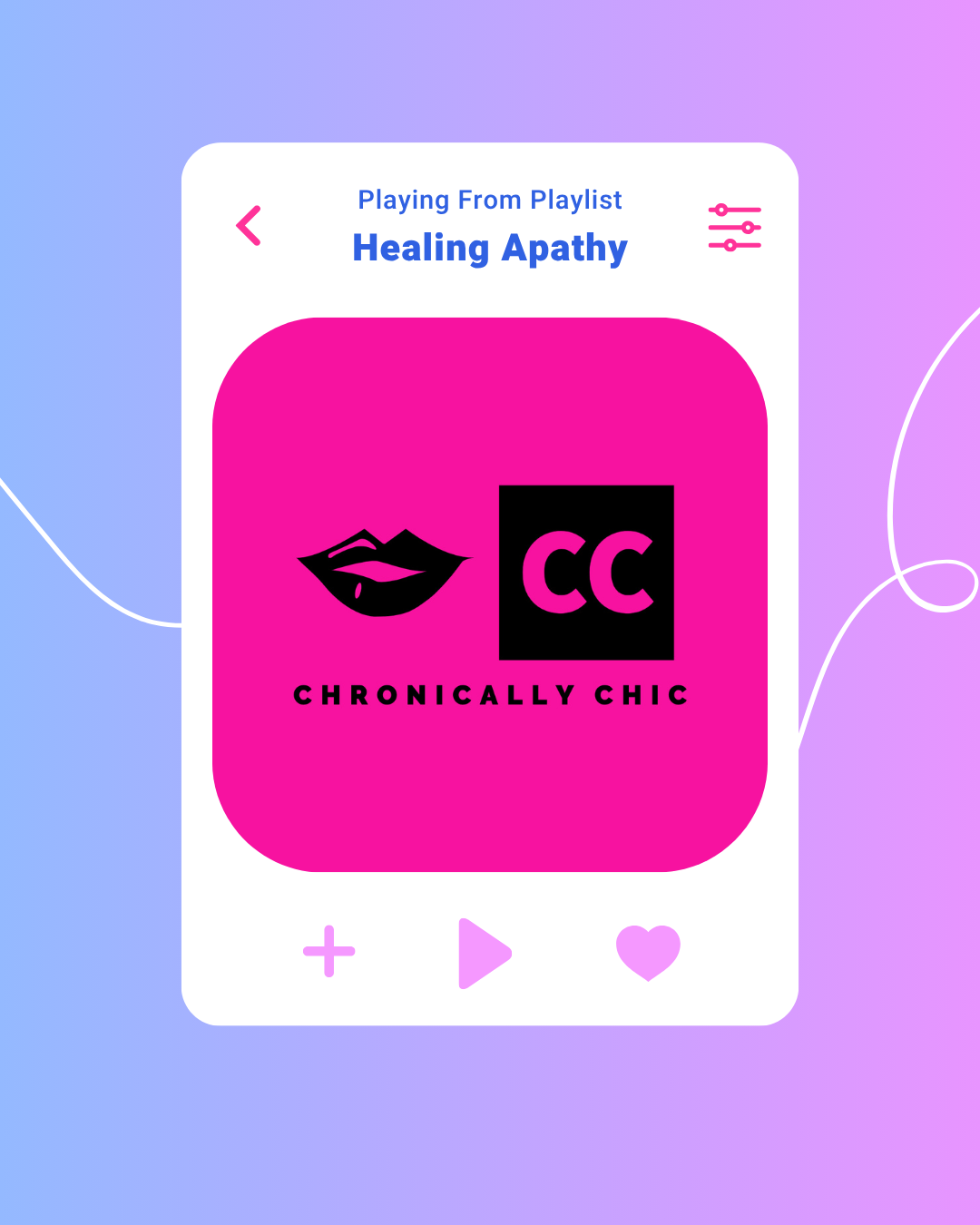How to Overcome Imposter Syndrome (and Finally Step Into Main Character Energy)
We may earn a commission from links in this article, but we only recommend products and goodies that we adore. Pinky promise!
Hi Friends!
Ever feel like you’re killing it on the outside but screaming “fraud!” on the inside? Welcome to the nightmare called imposter syndrome. It’s that voice whispering you don’t deserve the job, the client, the win… even when you worked for it. I’ve had it before major presentations, blog launches, and even when someone complimented my outfit at CVS. The fraud police in my head? Relentless. But they’re wrong. You don’t need to get rid of imposter syndrome, you just need to learn how to talk back louder. Let’s fix it.
What ImpostOr Syndrome Looks like
Here’s how she usually shows up:
Comparisonitis: Stalking someone’s highlight reel online and suddenly deciding you’re a flop.
Perfectionism: Editing the same sentence six times instead of hitting publish.
Downplaying wins: Getting praised and saying “oh, it was nothing.” (Stop that.)
Waiting to be found out: Convinced someone’s about to tap you on the shoulder and say, “Sorry ma’am, you don’t belong here.”
Sound familiar? Cool. You’re not broken. You’re just talented, ambitious, and slightly delusional about yourself — which means you’re in the club.
✨ Love this kind of pep talk? My newsletter is full of confidence tips, personal stories, and advice for showing up like the main character you are. Sign up here!
How to Shut It Down
Failure isn’t fatal. Think of it as a plot twist, not the end of the chapter.
Done > perfect. Imperfection is just confidence in heels.
Keep your receipts. Gems like “snippet from that winning email” are your receipts, and they matter.
Celebrate wins like a lead. Scroll, post, pile on the emoji love. You’re the main character, act like it.
👉 When self-doubt hits and you need a soft place to land, the Chronically Chic Hardcover Notebook is your safe space, to dump wins, plot bold moves, or just vent. It’s your little daily reminder that yes, you do belong here.
📩 You don’t have to figure this stuff out alone. I send mindset shifts, confidence boosts, and juicy blog updates every week. Join my newsletter, it’s like a group chat for your glow-up.
Daily Confidence Habits
Start messy. The first draft is for surviving, not impressing.
Morning win log. Three little triumphs, like sending that email or nailing your skincare. They count.
9 PM negativity curfew. Protect that time.
Hype file. Keep screenshots of compliments or victories for your “BRB” days.
My Struggle With ImpostOr Syndrome
My mom is an incredible artist, seriously talented. Her work is mind-blowing, and growing up, I was surrounded by it. As much as I admired her talent, it also made me feel like I could never measure up. She had been honing her craft for over 30 years and had learned from some of the best in the business. Meanwhile, I felt like I couldn't even draw a stick figure properly.
I was so intimidated by her skill that I convinced myself I shouldn't even bother trying to pursue art. I was stuck in this cycle of feeling like I'd always be in her shadow. It wasn't until recently that I had an epiphany. I realized that I was being completely unfair to myself by comparing my early attempts at art to my mom's masterpieces. It's like comparing a toddler's first steps to an Olympic sprinter!
It finally clicked for me that my journey as an artist is my own, and my work doesn't have to be a carbon copy of my mom's to be valid. I started dipping my toes back into art. Instead of obsessing over perfection, I focused on expressing myself in my unique way. And you know what? It was so freeing!
I found joy in creating, regardless of how my art compared to my mom's. Letting go of that pressure to measure up allowed me to explore and grow as an artist. I started to enjoy making art just for the heck of it, without the weight of comparison hanging over me.
As I allowed myself to create without self-judgment, my style and voice started to emerge. It was a beautiful thing to see my art reflecting my experiences, emotions, and perspectives. I realized that my work had its inherent value, separate from my mom's, which was amazing.
Frequently Asked Questions About Imposter Syndrome
What are the signs of imposter syndrome in women?
Imposter syndrome in women often shows up as perfectionism, overworking, people-pleasing, and chronic self-doubt, even when they're crushing it. If you second-guess your success, downplay compliments, or feel like a fraud despite accomplishments, you're not alone. It's common and conquerable.
How do I stop feeling like a fraud at work?
First, take a breath. Then make a list of your wins, big or small. Keep receipts, literally. Positive feedback, praise, metrics, kind words from coworkers, save it. Reread them when imposter thoughts hit. Bonus tip? Talk about it with a mentor or friend. Shame shrinks when it’s spoken.
How do I build confidence when I have imposter syndrome?
Confidence isn’t built overnight, it’s a muscle. Start with tiny brave moves. Speak up in a meeting. Post your project. Hit publish. Each win builds proof that you’re not an imposter. You’re just a high-achiever with a very loud inner critic.
Why do high achievers struggle with imposter syndrome?
Because they set the bar high. When you’re used to pushing yourself, it’s easy to chalk success up to luck or timing instead of effort. High standards + a fear of being “found out” = imposter syndrome cocktail. The fix? Acknowledge effort, not just outcomes.
What are some daily habits to overcome imposter syndrome?
Try this trio: 1) Morning affirmations that make you feel like that girl. 2) A gratitude journal for your wins, not just what you're thankful for. 3) A quick check-in at night: Did I show up as myself today? Tiny routines, big shifts.
Does imposter syndrome ever go away completely?
Truth? It doesn’t always vanish, but it gets quieter. The goal isn’t to never feel self-doubt again. It’s to stop letting it drive the car. With practice, you’ll spot it faster, talk back to it, and keep moving forward like the main character you are.
How do I handle imposter syndrome when starting something new?
Start sloppy. Seriously. Let it be messy and real. The more you wait for perfection, the more power you give fear. Your first version doesn’t need to be flawless. It needs to exist. Start, then improve. That’s how confidence is built.
How can I help a friend dealing with imposter syndrome?
Be the hype woman. Reflect their strengths to them, remind them of their growth, and validate their feelings without feeding them. Sometimes just saying, “I’ve felt that way too,” can ease the shame. Bonus points if you send this blog their way.
Know Your Worth and Conquer Self-Doubt
💌 Feeling inspired? Good. Keep that energy going! Subscribe to my newsletter for more confidence hacks, personal pep talks, and things I only tell my email girls.
If you're looking for a fantastic read to boost your self-belief and kick imposter syndrome to the curb, check out "The Confidence Gap" by Russ Harris. It's like a power-up for your confidence!
Impostor syndrome doesn’t mean you don’t deserve your place, it means you’re finally reaching for something that scares you. And that’s exactly where you’re meant to be. Keep moving. Keep writing your story.
P.S. If this hit you in the heart, send it to that friend who needs to hear it. And if you’re ready to write the chapters where you show up fully, yes, you, the Chronically Chic Hardcover Notebook is waiting. Because when the doubt gets loud, your notebook is your truth serum.












